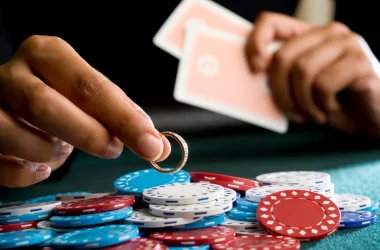Professional sports bettors use advanced stats, metrics, and models to gain an edge over their opponents and make informed decisions without bias or emotion affecting them. Furthermore, they understand how to hedge bets or arbitrage wagers with confidence.
They treat their betting as a business and manage their bankroll with discipline, never allowing emotions to cloud their judgment on wins or losses.
Self-discipline
Self discipline refers to the ability to follow through on plans and overcome obstacles, making it essential for professional bettors who must often navigate uncertain waters within the game. Furthermore, it plays an integral role in successful bankroll management. An excellent way to foster self discipline is setting SMART goals which are specific, measurable, attainable, relevant, and time-bound – something all professional bettors need!
Your betting bank should help protect the integrity of your finances by keeping fluctuation in profit or loss out of the equation, while helping prevent impulsive bets that often derail gamblers’ fortunes. Emotional control is also key for professional bettors; emotional discipline helps prevent chase losses and overstaking as two common pitfall for sports gambling; strong work ethics and perseverance can also contribute to self-discipline while an emphasis on long-term goals are crucial components to becoming a successful professional sports bettor.
Patience
Patience is the ability to manage emotions in stressful situations and this helps bettors make wiser decisions and avoid making hasty errors. Patience also promotes a consistent research process and allows realistic expectations to be set, helping bettors avoid placing high-risk bets for instant gains and focus instead on gradual profits.
Patient gamblers possess an optimistic approach to life and recognize that betting involves some degree of luck and randomness. They understand that short-term wins can lead to overconfidence and poor decision-making, so they remain calm while staying focused on their long-term strategy and avoid cognitive biases such as the gambler’s fallacy that may cause quick decisions.
Bettors that adopt a patient approach to gambling also benefit from wise bankroll management. By keeping track of all their bets and knowing exactly how much has been won and lost, bettors can prevent themselves from chasing losses or making hasty bets to try and recapture previous winnings.
Analytical skills
Professional gamblers use analytical skills to weigh the risks and rewards when making informed decisions, using risk/reward analysis. Furthermore, they often reassess their strategies during winning streaks to ensure they’re taking full advantage of their chances for success. This approach removes emotional biases while improving decision-making accuracy for greater returns on investment.
Analytical skills are especially crucial in sports betting, where complex mathematics determine the odds of each bet. Successful professionals know how to interpret odds and use them to identify betting opportunities with high probabilities of profit. Furthermore, their analytic abilities enable them to manage risk by diversifying bets and limiting exposure.
Professional gamblers rely on emotional self-regulation techniques like cognitive reappraisal to regulate their emotions and avoid making hasty decisions that lead to losses or frustration, thus helping prevent impulsive decisions or chase losses. Realizing the ever-evolving gambling landscape demands flexible strategies and systems so as to remain competitive, these professionals must constantly modify their systems in order to stay profitable.
Self-confidence
Self-confidence is the belief that anything is possible once your mind is set on it, distinct from self-esteem which evaluates worthiness. Self-efficacy refers to the belief in yourself’s ability to complete a task successfully.
Successful professional bettors rely on their research and understanding of sports to make confident bets, using disciplined bankroll management practices to avoid chasing losses or making reckless bets. Furthermore, they possess an in-depth knowledge of odds; carefully considering risk/reward ratio before placing their bet.
Building self-confidence can be challenging in an extremely competitive environment. To boost yours, recall an event when you felt good about yourself – whether that’s a graduation photo, learning to ride a bicycle for the first time or any other feat you accomplished along your journey. Remind yourself all the steps taken along your way and celebrate every success as it comes!












